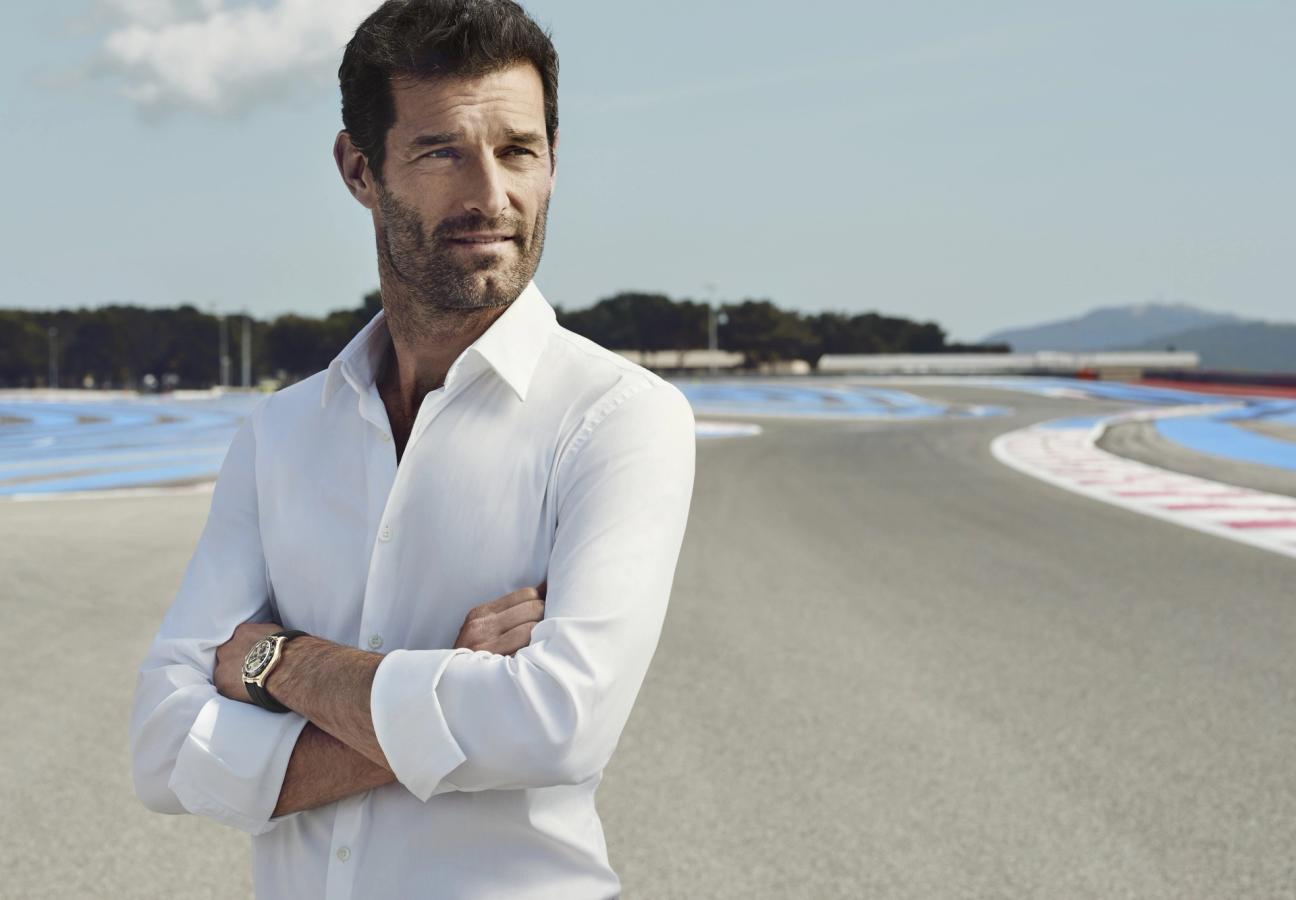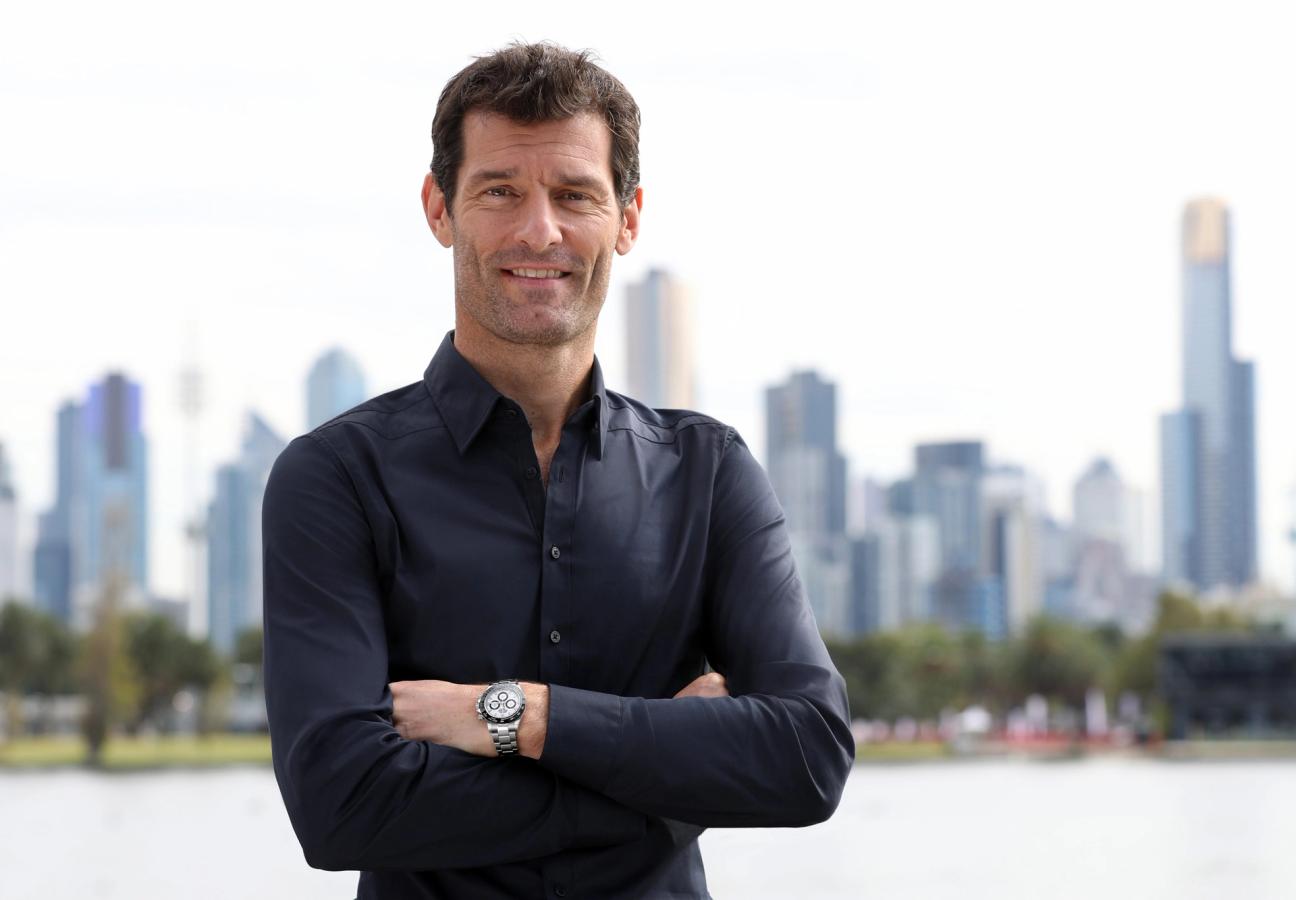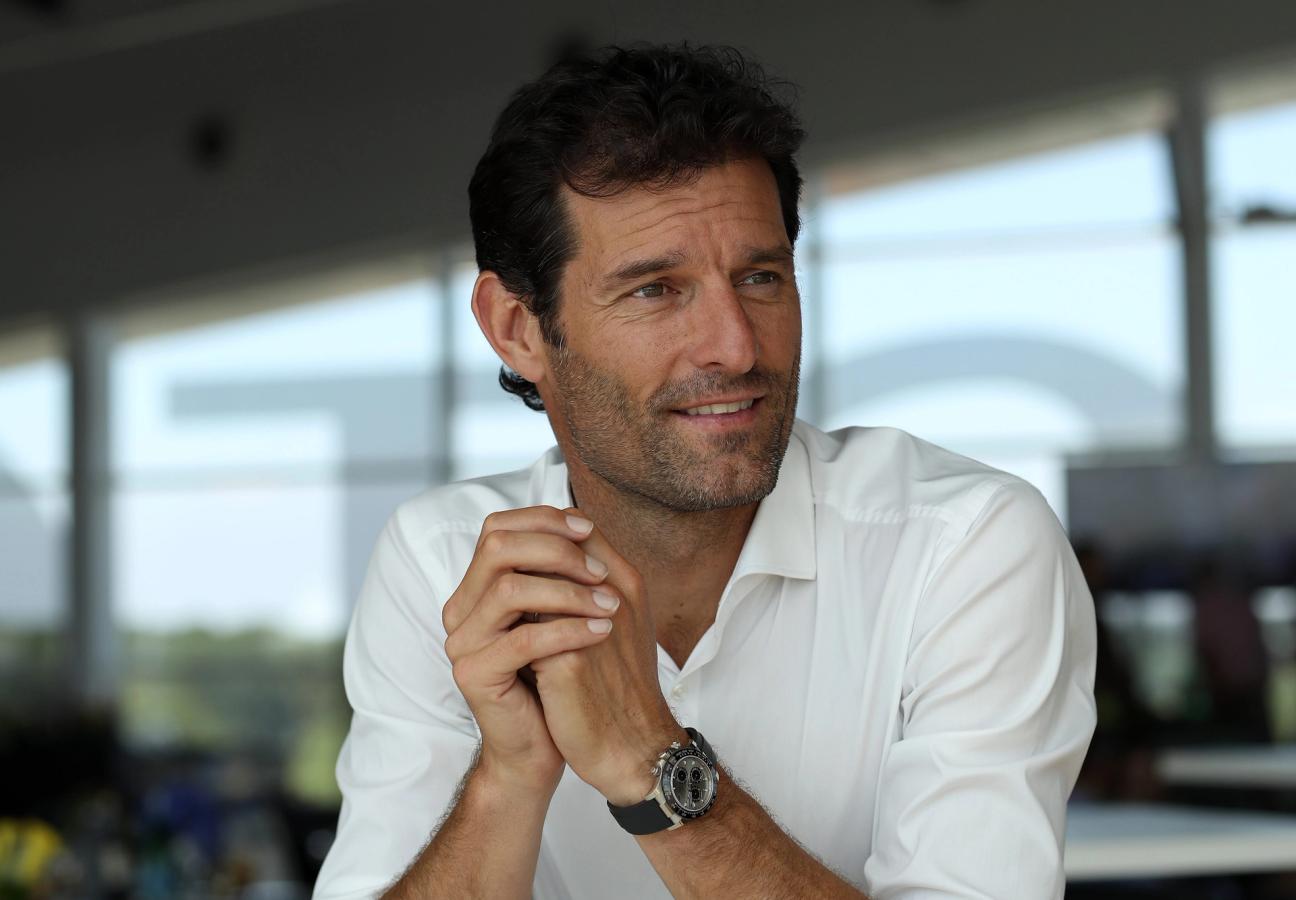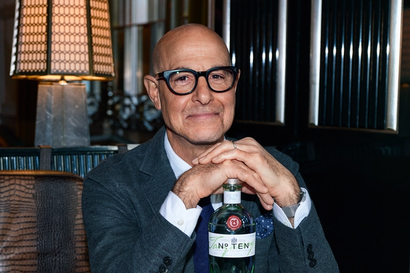There’s something effortlessly charming about an Australian polymath. Last year, when Gentleman’s Journal met Hugh Jackman, we asked the entertainer: is there anything you can’t do? And, upon meeting up trackside with Mark Webber at Silverstone’s British Grand Prix, we asked the very same question.
The racing driver laughs, but his motorsport track record is an impressive one. He famously raced in Formula One before retiring, winning nine Grands Prix with Red Bull Racing. He won the 2015 FIA World Endurance Championship as a Porsche works driver. He’s raced in Formula 3000, the FIA GT Championship and the 24 Hours of Le Mans. And crossing all of these finish lines has given him quite the collection of motorsport skills under the bonnet.
“Driving at night, now that’s a skill,” points out the 42-year-old. “And it literally hit me between the eyes. When you’re at Le Mans at 3am, and it’s dark and you’re doing 220 mph, that’s something you’ve got to embrace. It’s a different discipline all together.”
Most fans will know Webber for his Formula One podium finishes — the Australian ended the 2010, 2011 and 2013 championships in third place — but he also frequently topped the rankings in his endurance racing career.

“I can tell you, I learned a lot about sleep deprivation,” he laughs. “When you’re endurance racing, you realise how little sleep you can get by on — and to think I was so bloody pedantic about sleep when I raced Formula 1!”
But, with top drivers today trying out everything from meditation to cryotherapy to reach pole position, does Webber feel like he missed out on the era of wellness in motorsport?
“Actually, Michael Schumacher changed the game with that,” he shrugs. “He realised that a two hour Grand Prix is actually a sprint, and so you had to be in shape. So Formula 1 then delved into the human performance side. We took blood samples, core body temperatures, got very, very up close and personal.”
"When you’re at Le Mans at 3am, and it’s dark and you’re doing 220 mph, that’s a different discipline all together..."
It wasn’t the best news for Webber. The Australian reveals that, standing at over six feet tall, this new regime demanded he be very skinny for his size — and that meant every season was a constant battle between maintaining his weight and immune system. With the travel, jet lag, diets and stress, surely he was relieved to retire by the time 2016 rolled around?
“When you retire from your main profession,” Webber considers, “I think you hit a bit of a glide slope. I had spent every second of every day for 14 years thinking about being a Grand Prix driver, so it had been all-encompassing. I may not have had the most talent in the world, but I’d been very busy applying myself to fill in the blanks and getting the job done as best I could.”
But, instead of letting the ‘glide slope’ get the better of him, Webber threw himself into other pursuits. A keen tennis player (the Australian won the annual F1 Pro-Am tennis tournament in Barcelona three times), he explored his talents that lay beyond the track. He wrote a candid memoir, Aussie Grit, and eventually accepted a call from Channel 4 to become a fully-fledged Formula 1 pundit.

Because, as Webber admits, the sport is so extensive and wide-reaching, that your career can be wound up around the track forever.
“Formula 1 is at the cutting edge,” he reasons. “It has consequences, pressure, emotion. It has adrenaline, travel, logistics and operations. There isn’t a segment in which Formula 1 doesn’t need to operate. So, whether it’s on the sporting or commercial side, there’s so many post-career facets if you want to continue on.
“I do miss the racing, though,” he adds. “I miss the team spirit.”
And Webber’s team, Red Bull Racing, certainly did serve him well. When they supported him to his first ever Grand Prix win at Germany’s 2009 meet, he knew there was only one way to celebrate.
“Some people go and get a tattoo — but that’s not my type of thing,” says Webber. “Instead, I knew it was important to have something that signified this incredible win for me. And a Rolex watch is for life, it’s a message to yourself.
“A Rolex says: ‘I am going to get something I can have for life, that has also been on a bit of a journey itself’. It literally is a timeless piece of equipment, and that’s why the GMT, my first Rolex purchase, was very, very special.”

Webber is clearly a proud man. Proud of his achievements, proud of his career and proud of his home nation.
“I am fiercely patriotic, yes!” the Australian smiles. “I think that, as a country, we put a tremendous amount of pressure on ourselves to hold world class sporting events, whether that be the tennis or the Rolex Australian Grand Prix — and it’s been that way for decades.
“There’s not a single mechanic, photographer or driver who doesn’t enjoy going to the first race at the Australian Grand Prix — it’s nightmare to get to but, once you’re there, it’s very, very special. Long may it continue.”
Wonder what Rolex Webber would buy if he won his first Grand Prix today? These are the best the Maison has to offer in 2019…

Become a Gentleman’s Journal Member?
Like the Gentleman’s Journal? Why not join the Clubhouse, a special kind of private club where members receive offers and experiences from hand-picked, premium brands. You will also receive invites to exclusive events, the quarterly print magazine delivered directly to your door and your own membership card.


